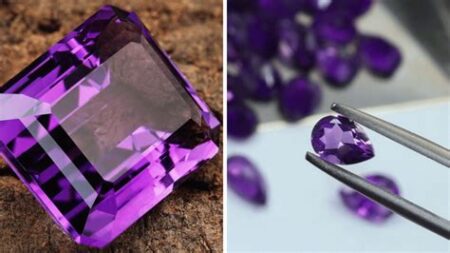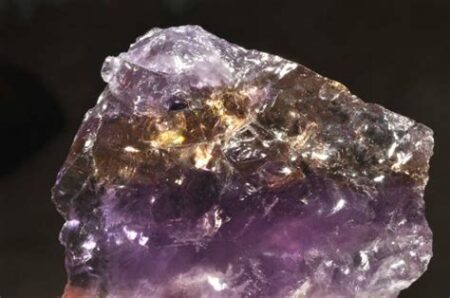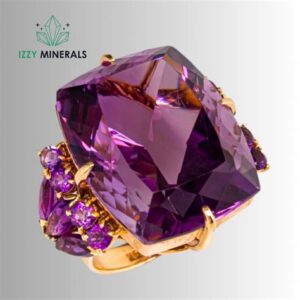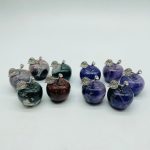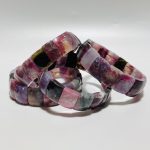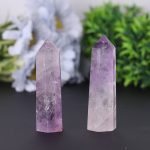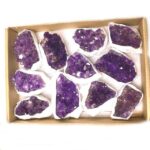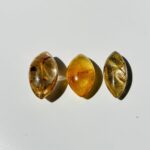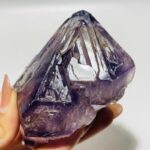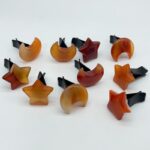The Value of Crystals: A Comprehensive Guide
Crystals, with their captivating allure and enigmatic properties, have captivated civilizations for centuries. Their perceived metaphysical powers and aesthetic splendor have fueled a global industry, leaving many curious about their monetary worth. In this comprehensive guide, we delve into the factors influencing the value of crystals, explore their diverse applications, and unveil the secrets behind their desirability.

Intrinsic Value: Formation and Rarity
The intrinsic value of a crystal stems from its unique geological formation. The complex interplay of pressure, temperature, and time gives birth to an array of crystals, each with its distinctive chemical composition and crystalline structure. This results in a vast spectrum of varieties, including quartz, amethyst, calcite, fluorite, and countless more.
Rarity plays a significant role in determining a crystal’s worth. Some crystals are relatively common, while others are exceedingly rare. The scarcity of a particular crystal, driven by geological processes and limited availability, enhances its value.
Exceptional Crystal Properties
Certain crystals exhibit exceptional properties that further elevate their value. These include:
- Clarity: Clear, blemish-free crystals are highly prized, as they showcase their natural beauty and radiance.
- Size: Larger crystals, particularly those exceeding a certain weight or dimension, command a higher price due to their rarity and aesthetic appeal.
- Coloration: Vividly colored crystals, such as deep purple amethyst or vibrant green emerald, are more valuable than their paler counterparts.
- Phenomena: Some crystals exhibit optical phenomena, such as asterism or chatoyancy, which add to their allure and increase their worth.
Applications: Beyond Aesthetics
Crystals find utility not only in jewelry and décor but also in various fields:
- Metaphysical: Crystals have been attributed with healing, spiritual, and energy-clearing properties, leading to their use in crystal healing and meditation practices.
- Industrial: Certain crystals, like quartz and calcite, are employed in electronics, telecommunications, and optics due to their unique optical and electrical properties.
- Medical: Some crystals, such as tourmaline and amethyst, are believed to alleviate pain and improve overall well-being.
- Crystallochemistry: The study of crystals and their chemical compositions provides insights into geological processes and mineral resources.
Market Factors: Supply and Demand
The value of crystals is influenced by market forces, primarily supply and demand. When supply is abundant and demand is low, prices tend to be lower. Conversely, if supply is scarce and demand is high, prices can soar.
Factors such as economic conditions, consumer trends, and technological advancements can impact supply and demand dynamics. For example, increased demand for crystals in alternative medicine or jewelry can drive up their value.
Table 1: Popular Crystals and Their Approximate Value
| Crystal | Value Range |
|---|---|
| Amethyst | $1-$20 per carat |
| Citrine | $5-$50 per carat |
| Diamond | $5,000-$150,000 per carat |
| Emerald | $500-$50,000 per carat |
| Jade | $20-$5,000 per carat |
| Opal | $10-$100 per carat |
| Ruby | $2,500-$100,000 per carat |
| Sapphire | $200-$50,000 per carat |
| Tanzanite | $100-$1,000 per carat |
Valuation and Authentication
Accurately valuing crystals requires a combination of expertise and ethical considerations. Gemological institutes, such as the Gemological Institute of America (GIA), provide certification and grading services to establish the authenticity and quality of crystals.
Factors considered in valuation include:
- Crystal variety
- Clarity, color, and size
- Cut and symmetry
- Origin and provenance
- Treatment and enhancements
Table 2: Gemological Grading Factors
| Factor | Description |
|---|---|
| Carat Weight | Measure of a crystal’s mass |
| Clarity | Presence and extent of inclusions |
| Color | Hue, saturation, and tone |
| Cut | Shape and proportions |
| Fluorescence | Emission of light under UV radiation |
Tips and Tricks
- Buy from reputable dealers with a proven track record.
- Consider gemstones with exceptional properties or unique colors.
- Research current market trends to understand value fluctuations.
- Obtain certification from a gemological institute to ensure authenticity.
- Invest in clear, large, and vibrantly colored crystals.
Common Mistakes to Avoid
- Purchasing crystals based solely on appearance without considering their intrinsic value.
- Buying from untrustworthy sources that may sell synthetic or treated crystals.
- Overpaying for crystals due to inflated prices or false claims.
- Neglecting certification or authentication when making significant investments.
- Choosing crystals with visible flaws or inclusions that compromise their value.
Table 3: Crystal Care and Maintenance
| Care Type | Description |
|---|---|
| Cleaning | Use a soft brush or cloth with warm water and mild soap |
| Storage | Keep crystals in a cool, dry place away from sunlight and moisture |
| Protection | Store larger crystals separately to prevent scratches |
| Charging | Some believe in charging crystals by sunlight, moonlight, or specific rituals |
Table 4: Emerging Applications of Crystals
| Application | Description |
|---|---|
| Piezoelectricity | Harnessing electrical energy from mechanical stress |
| Optics | Creating devices for light manipulation and imaging |
| Sensors | Detecting temperature, pressure, and movement |
| Nanotechnology | Developing high-performance materials and devices on a molecular scale |
Conclusion
The value of crystals is a multifaceted concept influenced by their intrinsic properties, market dynamics, and perceived benefits. By understanding these factors, consumers can make informed decisions when purchasing crystals for investment, aesthetic enjoyment, or metaphysical purposes. Remember, the true value of crystals lies not only in their monetary worth but also in the joy and inspiration they bring.

